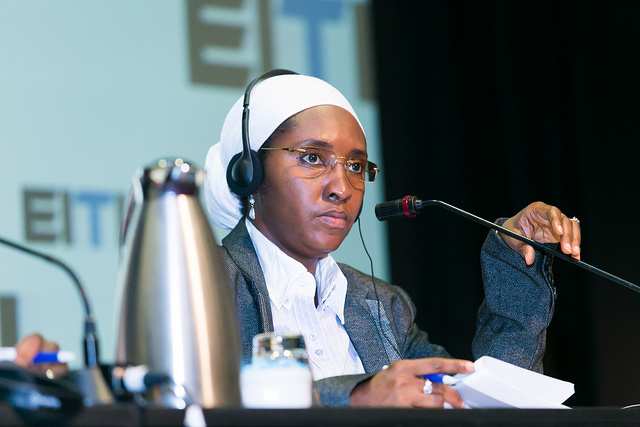- ‘FAAC didn’t Discuss Paris Club Refund Reversal to Benue’
The Permanent Secretary, Ministry of Finance, Mahmoud Dutse, on Wednesday said that the Federation Account Allocation Committee did not discuss the issue of the reversal of the Paris Club refund made to some states.
Dutse said this while responding to questions raised by journalists shortly after the FAAC meeting held in Abuja.
Hundreds of workers in Benue State had on Tuesday expressed shock over the alleged recall of the final tranche of the Paris Club refund earlier paid to the state government.
Two workers were alleged to have slumped as they received the news of the recall of the fund.
The Benue State Chairman of the Nigeria Labour Congress, Godwin Anya, had expressed shock over the development.
He said, “I don’t know the reason for the recall of the Paris Club loan refund. Everybody has been expecting to be paid because the governor on Monday directed the payment of salary arrears.
“I don’t know the reason for that nonsense; I don’t know where this country is heading to.”
But when asked why the money was reversed for Benue and some other states, Dutse said FAAC was not the meeting for the discussion of such matters.
He stated, “The Paris Club refund is not really a FAAC matter; FAAC meets to review revenue collection in the Federation Account and agree on the distribution. The issue of Paris Club refund is a technical matter and we did not discuss it at all at this meeting.
“So, what I think is that you should direct the question to the appropriate agency of government and you will get the correct answer; I don’t want to mislead you.”
Meanwhile, the committee on Wednesday allocated a total of N741.84bn to the three tiers of government.
Dutse said the amount allocated to the three tiers of government was from the revenue generated in of August.
He stated that the gross statutory revenue received for the month was N627.13bn, adding that this was higher than the N609.9bn received in July by N17.16bn.
The permanent secretary added that the N741.84bn distributed comprised statutory revenue of N627.13bn, Gross Value Added Tax of N114.54bn and an exchange gain of N162m.
He said there was also a saving of N40bn into the Excess Crude Account.
Dutse put the balance in the ECA as of September 25, 2018 at $2.46bn, while the balance in the Excess Petroleum Profit Tax on the same date was $0.133bn.

 Forex3 weeks ago
Forex3 weeks ago
 Naira3 weeks ago
Naira3 weeks ago
 Billionaire Watch2 weeks ago
Billionaire Watch2 weeks ago


 Naira3 weeks ago
Naira3 weeks ago




 Naira2 weeks ago
Naira2 weeks ago




 Naira1 week ago
Naira1 week ago




 Naira4 weeks ago
Naira4 weeks ago
 Banking Sector4 weeks ago
Banking Sector4 weeks ago
























